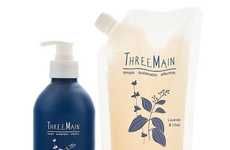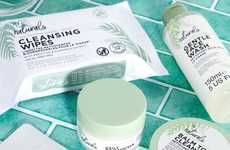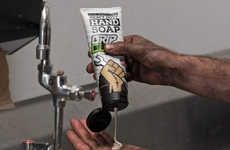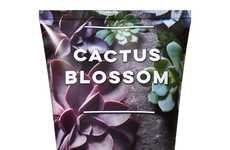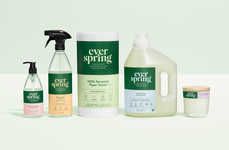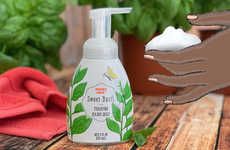


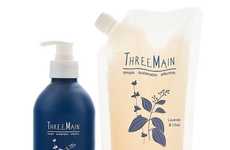
Biodegradable soaps are differentiated as cost-effective alternatives
Trend - Where once, sustainability-focused alternatives to everyday goods were offered at a premium, today's biodegradable soap offerings are being promoted for their affordability. These more cost-effective soap options are touted as being more eco-friendly due to their 'leave-no-trace' impact on our natural environment, without skimping on quality.
Insight - More consumers are becoming concerned with environmental degradation, as highlighted by events like the global climate strikes. While this heightened sense of urgency contributes to the switch to more sustainable consumption habits, others are incentivized by the increased availability of more affordable eco alternatives. This is because the cost-effective and accessible leave-no-trace solutions overcome a key barrier in making that switch for price-sensitive shoppers.
Insight - More consumers are becoming concerned with environmental degradation, as highlighted by events like the global climate strikes. While this heightened sense of urgency contributes to the switch to more sustainable consumption habits, others are incentivized by the increased availability of more affordable eco alternatives. This is because the cost-effective and accessible leave-no-trace solutions overcome a key barrier in making that switch for price-sensitive shoppers.
Workshop Question - What is one material or ingredient that would be at the top of your sustainable innovation wish-list?
Trend Themes
1. Affordable Biodegradable Products - Consumers are switching to more sustainable consumption habits and incentivized by increased availability of more affordable eco alternatives.
2. Refillable and Reusable Products - As single-use plastic becomes a growing concern for consumers, biodegradable and plastic-free products are a popular disruptive innovation opportunity.
3. Concentrated Organic Products - The demand for eco-friendly and healthier product ingredients have brought about a need for organic products that are non-toxic, free of synthetic fragrances, and made exclusively of plant-based or mineral materials.
Industry Implications
1. Eco-friendly Household Products - Businesses can create a wide range of biodegradable household products, from subscription-based models to plastic-free, eco-friendly, and bio-based products.
2. Personal Care Products - There is a need for more affordable personal care products that are nourishing, sustainably made, biodegradable, and non-toxic, and that utilize unique ingredients like hyaluronic acid.
3. Food Packaging and Delivery - Incorporating bike delivery services can help reduce carbon emissions and attract environmentally conscious customers by promoting a 'leave no trace' approach to food packaging and delivery.



